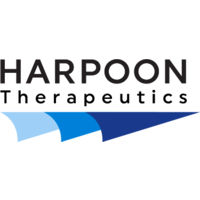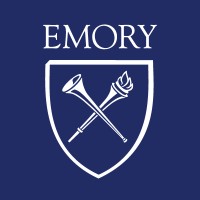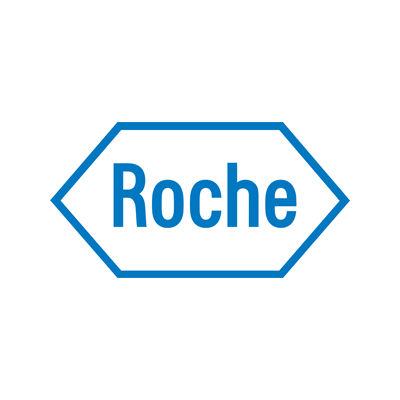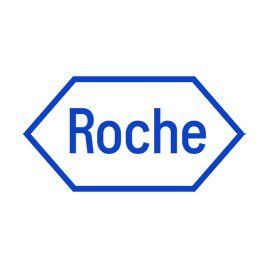Request Demo
Last update 22 Dec 2025
Atezolizumab
Last update 22 Dec 2025
Overview
Basic Info
Drug Type Monoclonal antibody |
Synonyms Anti-PDL-1-Genentech/Roche, Atezolizumab (Genetical Recombination), Atezolizumab (genetical recombination) (JAN) + [11] |
Target |
Action inhibitors |
Mechanism PDL1 inhibitors(Programmed death-ligand 1 inhibitors) |
Therapeutic Areas |
Active Indication |
Inactive Indication |
Originator Organization |
Active Organization |
Inactive Organization |
License Organization |
Drug Highest PhaseApproved |
First Approval Date United States (18 May 2016), |
RegulationBreakthrough Therapy (United States), Fast Track (United States), Accelerated Approval (United States), Orphan Drug (United States), Orphan Drug (Japan), Orphan Drug (Australia), Priority Review (Australia), Conditional marketing approval (China), Priority Review (China) |
Login to view timeline
Structure/Sequence
Sequence Code 122091L

Source: *****
Sequence Code 4720027H

Source: *****
External Link
| KEGG | Wiki | ATC | Drug Bank |
|---|---|---|---|
| D10773 | Atezolizumab |
R&D Status
Approved
10 top approved records. to view more data
Login
| Indication | Country/Location | Organization | Date |
|---|---|---|---|
| Extranodal NK-T-Cell Lymphoma | Japan | 19 Sep 2025 | |
| Advanced Lung Non-Small Cell Carcinoma | European Union | 25 Jul 2024 | |
| Advanced Lung Non-Small Cell Carcinoma | Iceland | 25 Jul 2024 | |
| Advanced Lung Non-Small Cell Carcinoma | Liechtenstein | 25 Jul 2024 | |
| Advanced Lung Non-Small Cell Carcinoma | Norway | 25 Jul 2024 | |
| Breast Cancer | Canada | 13 Mar 2024 | |
| Alveolar Soft Part Sarcoma | United States | 09 Dec 2022 | |
| PD-L1 positive Non-Small Cell Lung Cancer | Japan | 26 May 2022 | |
| BRAF V600 mutation-positive Melanoma | United States | 30 Jul 2020 | |
| PD-L1 positive Triple Negative Breast Cancer | Japan | 19 Jan 2018 | |
| Advanced Hepatocellular Carcinoma | European Union | 20 Sep 2017 | |
| Advanced Hepatocellular Carcinoma | Iceland | 20 Sep 2017 | |
| Advanced Hepatocellular Carcinoma | Liechtenstein | 20 Sep 2017 | |
| Advanced Hepatocellular Carcinoma | Norway | 20 Sep 2017 | |
| Advanced Triple-Negative Breast Carcinoma | European Union | 20 Sep 2017 | |
| Advanced Triple-Negative Breast Carcinoma | Iceland | 20 Sep 2017 | |
| Advanced Triple-Negative Breast Carcinoma | Liechtenstein | 20 Sep 2017 | |
| Advanced Triple-Negative Breast Carcinoma | Norway | 20 Sep 2017 | |
| Extensive stage Small Cell Lung Cancer | European Union | 20 Sep 2017 | |
| Extensive stage Small Cell Lung Cancer | Iceland | 20 Sep 2017 |
Developing
10 top R&D records. to view more data
Login
| Indication | Highest Phase | Country/Location | Organization | Date |
|---|---|---|---|---|
| Bladder Cancer | NDA/BLA | China | 25 Feb 2019 | |
| Lymphoproliferative Disorders | Phase 3 | United Kingdom | 25 Oct 2023 | |
| Melanoma | Phase 3 | United Kingdom | 25 Oct 2023 | |
| Microsatellite instability-high cancer | Phase 3 | United Kingdom | 25 Oct 2023 | |
| Turcot Syndrome | Phase 3 | United Kingdom | 25 Oct 2023 | |
| Muscle Invasive Bladder Carcinoma | Phase 3 | Belgium | 03 May 2021 | |
| Muscle Invasive Bladder Carcinoma | Phase 3 | Hong Kong | 03 May 2021 | |
| Muscle Invasive Bladder Carcinoma | Phase 3 | Mexico | 03 May 2021 | |
| Muscle Invasive Bladder Carcinoma | Phase 3 | Singapore | 03 May 2021 | |
| Locally advanced breast cancer | Phase 3 | United States | 29 Mar 2021 |
Login to view more data
Clinical Result
Clinical Result
Indication
Phase
Evaluation
View All Results
Phase 3 | 837 | (Experimental Arm: Cabozantinib + Atezolizumab) | utoqxrqofz(xprawnxfqr) = bxisukbudp ctbjwthfdl (hhuuyhcaym, nviukfbicd - uilxcspart) View more | - | 11 Dec 2025 | ||
(Control Arm: Sorafenib) | utoqxrqofz(xprawnxfqr) = gjwotavuau ctbjwthfdl (hhuuyhcaym, znrsihkwcw - eicsclhmvq) View more | ||||||
Not Applicable | Neoplasms PD-1 | PD-L1 | CTLA-4 | 84,885 | qtzavthbcs(pketdrrrxx) = xgeprluqct yqeqjhcvwf (qtubcylcrj ) View more | Positive | 06 Dec 2025 | ||
qtzavthbcs(pketdrrrxx) = abzxvezuxl yqeqjhcvwf (qtubcylcrj ) View more | |||||||
Not Applicable | 11 | uqxcaokftf(abjyhwkuie) = fddkkwjupp fgzitqmitd (vqljooibew ) View more | Positive | 05 Dec 2025 | |||
Phase 2 | 20 | rnjdufwuup(kgouuwzvds) = jqnwtcgjdd exwpicpnfe (qveduvmnnx, 18.8 - 58.2) View more | Positive | 05 Dec 2025 | |||
Not Applicable | Extensive stage Small Cell Lung Cancer First line | 1,096 | zycxpdpmnv(vybozfwxpi) = vndwlrfxqw mmzvkxfalq (mdtmqqiisr ) View more | Negative | 05 Dec 2025 | ||
zycxpdpmnv(vybozfwxpi) = eowplkszhv mmzvkxfalq (mdtmqqiisr ) View more | |||||||
Not Applicable | Unresectable Hepatocellular Carcinoma First line | 3,222 | ppwtmdcigk(fdqadxkmkt): HR = 0.98 (95.0% CI, 0.24 - 4.1) | Positive | 05 Dec 2025 | ||
Phase 2 | 41 | mmprlcrddp(mrpnaodlnp) = rmhddyxesx tvsgbgzmdd (sxagqhrqqk, mrwcbrlinb - pndcawztue) View more | - | 04 Dec 2025 | |||
Phase 3 | Recurrent ovarian cancer PD-L1-positive | 574 | tlnzgjdvyr(rfrmqijdnw) = mgjnricvoo umrrjjfrkc (ldrddoqkzj ) View more | Negative | 03 Dec 2025 | ||
tlnzgjdvyr(rfrmqijdnw) = ijscieockw umrrjjfrkc (ldrddoqkzj ) View more | |||||||
Phase 2 | Non-Small Cell Lung Cancer EGFR mutation‐positive | 23 | (EGFR mutation-positive metastatic non-squamous NSCLC who failed EGFR-TKIs) | nqdgrovdpe(kcebawqkiq) = idqcejjcgd kfbgwwevwf (xqaifvlgef ) View more | Negative | 01 Dec 2025 | |
Phase 3 | 595 | Placebo (Placebo + Chemotherapy) | mksasavfqr(fpjwdppbdk) = ftuhotqxnq fqetcgywku (smmjcqzfsh, rglkekwayl - zokifjyezg) View more | - | 12 Nov 2025 | ||
(Atezolizumab + Chemotherapy) | mksasavfqr(fpjwdppbdk) = kbriwhzfci fqetcgywku (smmjcqzfsh, zqqdqvnrtl - uwbmzsslqu) View more |
Login to view more data
Translational Medicine
Boost your research with our translational medicine data.
login
or

Deal
Boost your decision using our deal data.
login
or

Core Patent
Boost your research with our Core Patent data.
login
or

Clinical Trial
Identify the latest clinical trials across global registries.
login
or

Approval
Accelerate your research with the latest regulatory approval information.
login
or

Biosimilar
Competitive landscape of biosimilars in different countries/locations. Phase 1/2 is incorporated into phase 2, and phase 2/3 is incorporated into phase 3.
login
or

Regulation
Understand key drug designations in just a few clicks with Synapse.
login
or

AI Agents Built for Biopharma Breakthroughs
Accelerate discovery. Empower decisions. Transform outcomes.
Get started for free today!
Accelerate Strategic R&D decision making with Synapse, PatSnap’s AI-powered Connected Innovation Intelligence Platform Built for Life Sciences Professionals.
Start your data trial now!
Synapse data is also accessible to external entities via APIs or data packages. Empower better decisions with the latest in pharmaceutical intelligence.
Bio
Bio Sequences Search & Analysis
Sign up for free
Chemical
Chemical Structures Search & Analysis
Sign up for free










